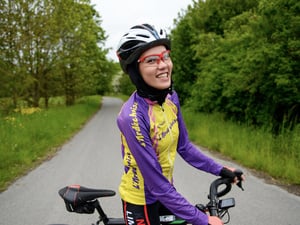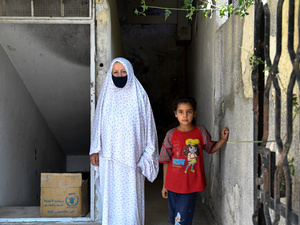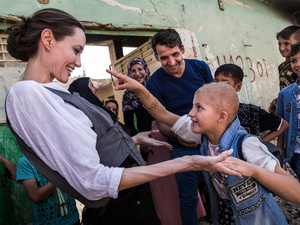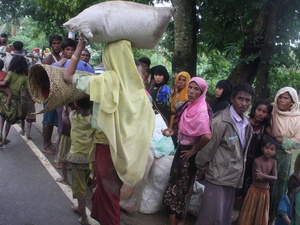‘Brighter Lives for Refugees’ Case Study 2 - Kobe Refugee Camp, Ethiopia
‘Brighter Lives for Refugees’ Case Study 2 - Kobe Refugee Camp, Ethiopia

A Somali refugee in Kobe Refugee Camp, Ethiopia travels via cart past a solar powered street light, similar to the type the new IKEA campaign ‘Brighter Lives for Refugees’ will supply. ©IKEA Foundation
Thirty year old Nunay* lives with her husband and their two children, two year old Nimo and five year old Sabrim in Kobe Refugee Camp Dollo Ado, Ethiopia
“We were some of the first people to arrive here in Kobe” explains Nunay.
“My husband and I travelled from Somalia for three days by foot with our family and some of our fellow villagers. The draught and the increasing threat of danger from militants made us leave our home in Somalia. It was not safe for any of us to stay any longer”
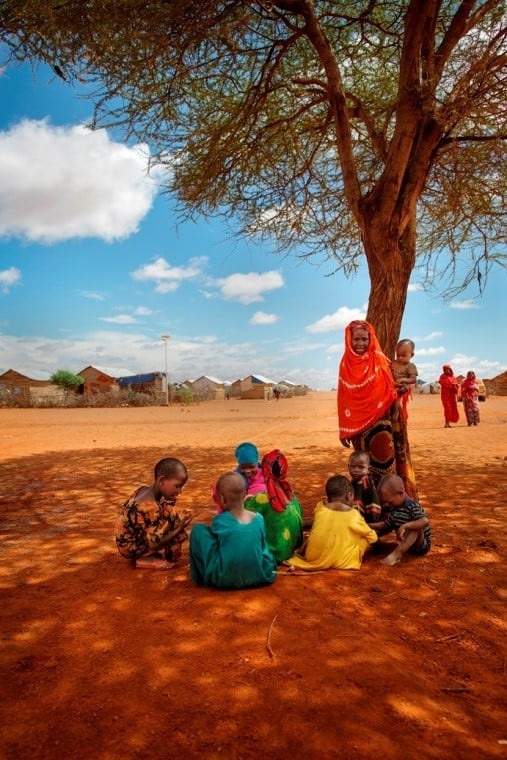
Nunay’s story is similar to that of many fellow Somali refugees who live in Kobe Refugee Camp, one of five refugee camps in southern Ethiopia jointly managed by the UN refugee agency (UNHCR) and the Ethiopian Administration of Refugee and Returnee Affairs (ARRA). Combined, the five refugee camps are home to some 200,000 Somali refugees.
“At first we had to adapt, but life in Kobe is better than it was back in Somali when we left. Here we are provided with food and clean water, we have peace and security, and importantly our children now have the chance to go to school.”
Yet whilst Nunay and her family are able to access essential services, life in the refugee camp is far from easy. After the sun goes down, the absence or lack of light severely limits the activities people can undertake. Simple tasks such as cooking, doing your schoolwork or even visiting the toilet can become difficult and dangerous, particularly for women and girls. With an absence of light, there is a risk of crime, sexual or gender based violence.
However, as a result of the new IKEA ‘Brighter Lives for Refugees’ campaign more solar street lights, indoor solar lanterns and other renewable energy technologies will be provided to families and communities in UNHCR refugee camps in Ethiopia, Chad, Jordan and Bangladesh. Running in IKEA stores globally, for every LEDARE light-bulb purchased during the campaign period, the IKEA Foundation will donate Є1 to UNHCR to deliver better lighting, renewable energy and primary education in UNHCR refugee camps.
“We can now go outside after dark without fear or worry about what could happen to us” Nunay explains.
“Before the street light was installed, you were afraid to leave your home, even visiting the toilet had dangers. We feel much safer now, the light even reaches our home so it’s easier for me to cook for my family and my children can still read their books after dark. There are less bad people around at night and the sense of security is much better now.”
*please note that all names have been changed.



